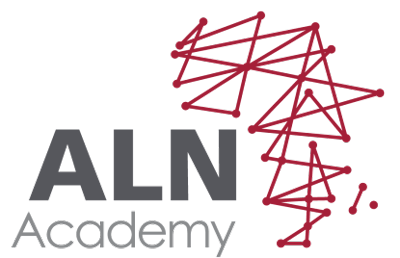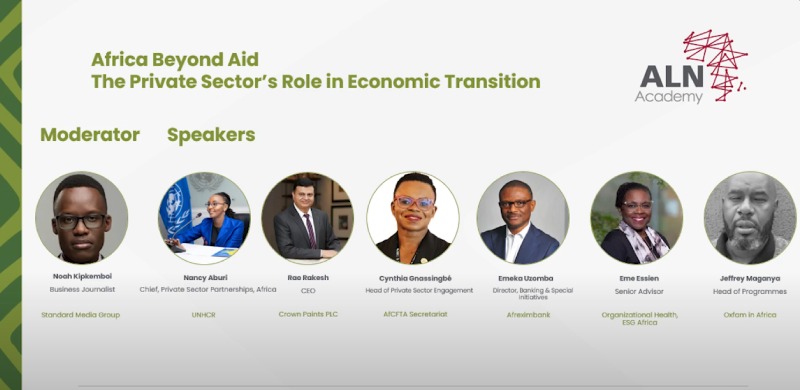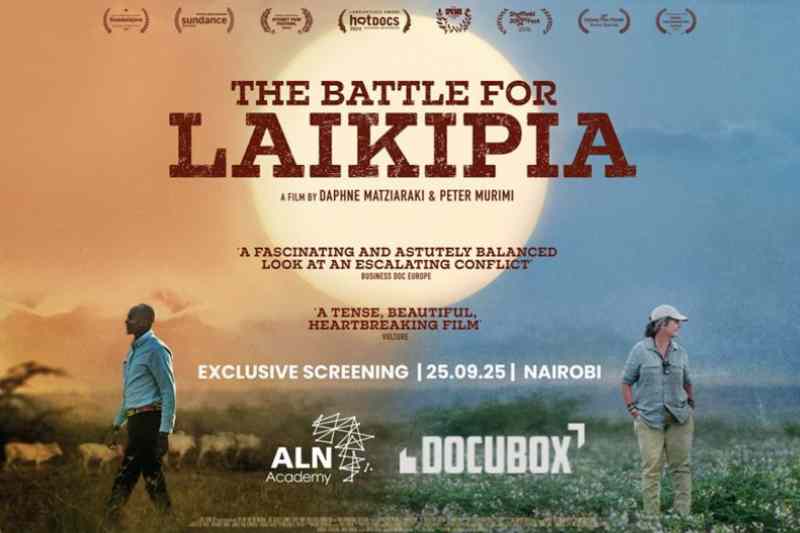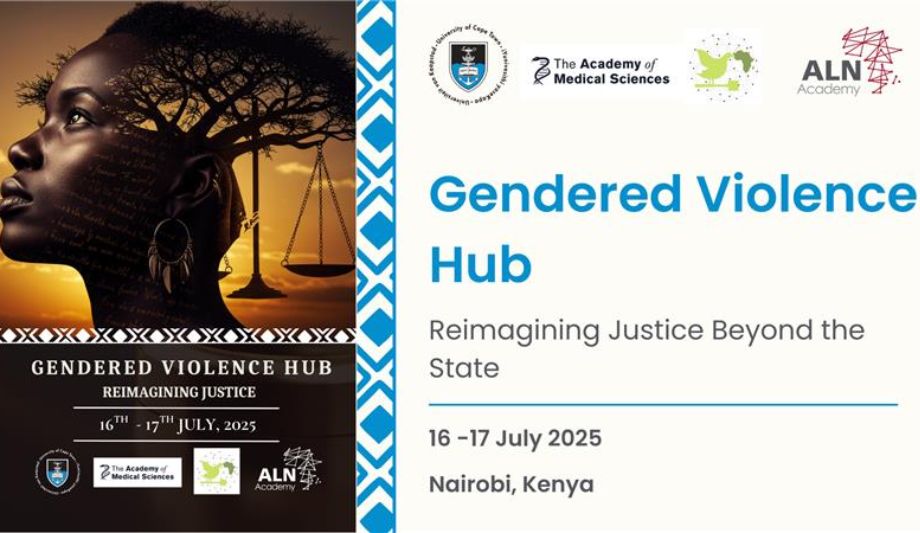On Thursday, April 4th, 2024, ALN Academy hosted a compelling and thought-provoking webinar titled “Africa Beyond Aid: The Private Sector’s Role in Economic Transition.” The session brought together experts in law, policy, entrepreneurship, and development to explore a critical question: How can Africa shift from aid dependency to sustainable, private sector-driven growth?
The conversation centered around how African countries can reimagine development by empowering local businesses, attracting responsible investment, and creating robust ecosystems for innovation and entrepreneurship.
Setting the Stage: Rethinking Aid
The webinar kicked off with a powerful call to action from Dr. Cathy Rakowski (IDN), who emphasized that while aid has played a significant role in Africa’s development journey, it is time to rethink its long-term viability.
“Aid should be catalytic, not permanent,” Dr. Rakowski noted. “If we’re not building ecosystems where businesses can thrive, then we’re missing the point.”
The speakers agreed that while aid still has a role, especially in humanitarian crises, it should no longer be the primary driver of African development.
Key Themes from the Discussion
1. The Private Sector as a Driver of Change
Speakers highlighted that Africa’s future lies in building strong, resilient, and innovative private sector ecosystems.
“We are not short of entrepreneurs in Africa. What we lack is an enabling environment that supports scale and innovation,” said Dr. Victor Owuor from the African Centre for the Study of the United States.
They discussed how the continent’s youthful population, digital connectivity, and growing intra-African trade through the AfCFTA can be leveraged to boost sustainable enterprise development.
2. Access to Capital and Financial Inclusion
A recurring concern was limited access to capital. Many African entrepreneurs still struggle to access affordable financing, especially women and youth-led businesses.
“We must look beyond traditional financing models,” said one panelist. “Blended finance, impact investing, and diaspora bonds can play a huge role in bridging the gap.”
There was also a call for African governments and banks to prioritize financial inclusion policies that make credit and investment more accessible to SMEs.
3. Strengthening Policy and Institutional Frameworks
Policy instability and weak governance remain major roadblocks for private sector growth.
“No investor wants to put their money in an environment where rules change overnight,” emphasized Dr. Rahma Adam, an economic policy analyst.
The panel urged African leaders to create transparent, consistent regulatory environments and strengthen public-private partnerships to foster trust and long-term investment.
4. Role of the Diaspora
Africa’s diaspora was recognized as a critical but often untapped resource. Beyond remittances, the diaspora can offer skills, networks, and investments that boost local economies.
“We have a global African community with a deep desire to contribute. But we need better channels for engagement,” noted another speaker.
Creating platforms that enable knowledge exchange and diaspora investment was identified as a key priority.\
Case Studies and Examples
The webinar also featured inspiring stories from African entrepreneurs and private sector champions who are already driving impact:
-
A fintech startup in Nigeria revolutionizing access to credit for farmers.
-
A logistics company in Kenya reducing last-mile delivery costs through AI.
-
A South African incubator supporting youth-led social enterprises.
These stories showcased the creativity and resilience of African businesses, even in the face of structural challenges.
Conclusion: Towards an Africa Beyond Aid
The webinar concluded with a strong consensus: Africa’s transformation will not come from charity, but from commerce.
“It’s time to rewrite the narrative. Africa is not just a beneficiary—it is a contributor to the global economy,” said one closing speaker.
The private sector, backed by smart policy, inclusive financing, and robust institutions, must now take center stage in Africa’s economic journey.
Final Thoughts
This powerful conversation served as a reminder that the continent’s greatest resource isn’t aid—it’s its people, ideas, and enterprising spirit. If properly nurtured, Africa’s private sector can shift the development paradigm and usher in an era of self-sustained growth.




